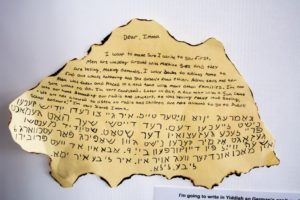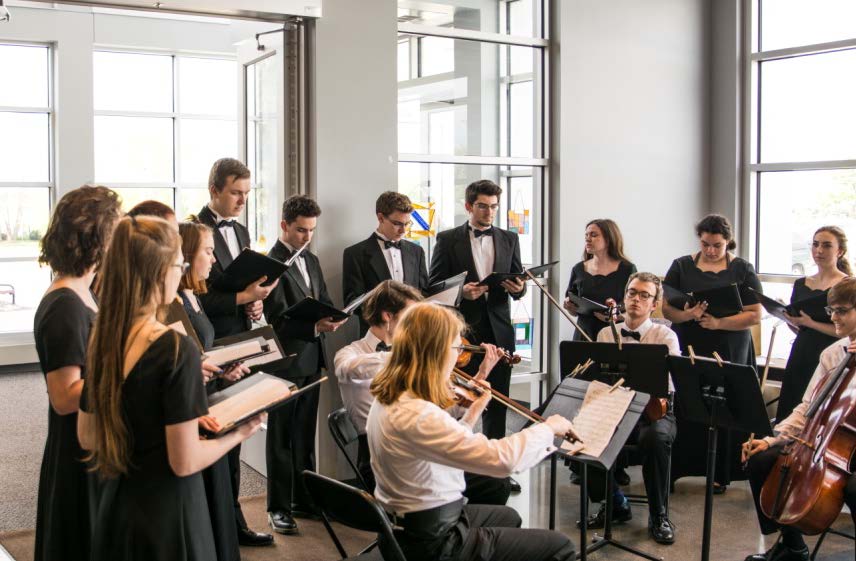The West Bend High Schools created and hosted an interdisciplinary unit with a concert and art gallery on themes of brokenness and wholeness specifically relating to the Nuremburg Laws, Kristallnacht, and the Rwandan Genocide. Nearly 850 students participated in the event, which was attended by 390 guests. Music performed during the concert focused on The Holocaust and Jewish cultural music. In conjunction with the concert, the art, social studies, English, culinary arts, and special education departments held the third annual Holocaust Art Show. The theme of this year’s show was “Broken Glass, Broken Lives – Putting the Pieces Back Together” and focused specifically on the restrictive Berlin ordinances and Nuremberg Laws culminating with Kristallnacht, or the Night of Broken Glass in November, 1938. English students focused on Kristallnacht and the Places of Remembrance project in Berlin, created by Renata Stih and Frieder Schnock. The social studies and special education students focused their study on the destruction of the Rwandan Genocide and the resiliency of the Rwandan people as they put their lives back together and the reconciliation that is occurring between the Hutus and Tutsis. Art students undertook an in-depth study of Stih and Schnock Signs of Remembrance Project as well as the events that occurred during Kristallnacht.
Throughout the gallery art pieces interpreting a number of signs from Stih and Schnock’s project were combined with select written pieces authored by English students reflecting on what it might be like to be a Jewish teenager having to live under the progressively restrictive ordinances imposed by the Nazis. A separate section was reserved for the social studies and special education select written pieces that were based on a genocide unit of study and photographs from the Rwandan Genocide and its aftermath used as writing prompts. The photographs used as prompts were prominently displayed with the corresponding written pieces. The exhibit also featured an “interactive” area where patrons were able to create a piece of art on a mirror tile interpreting their experience visiting the gallery. Across the gallery there were broken windows, glass, and mirrors reminding patrons that as governments exercise unchecked power, lives can be easily expended and brokenness can consume society.

